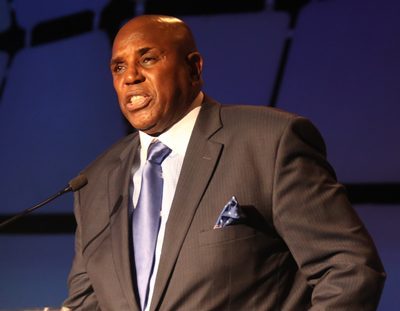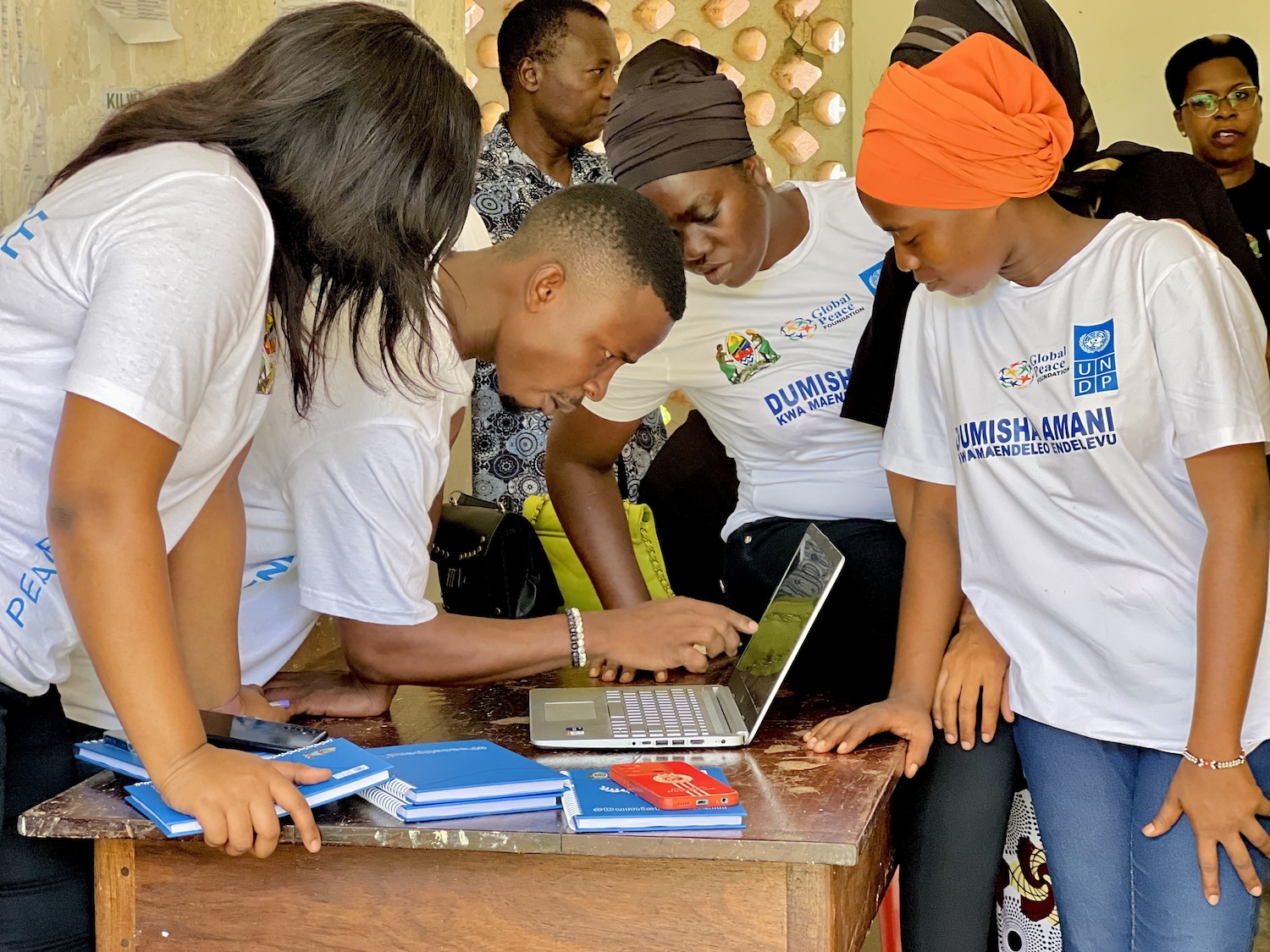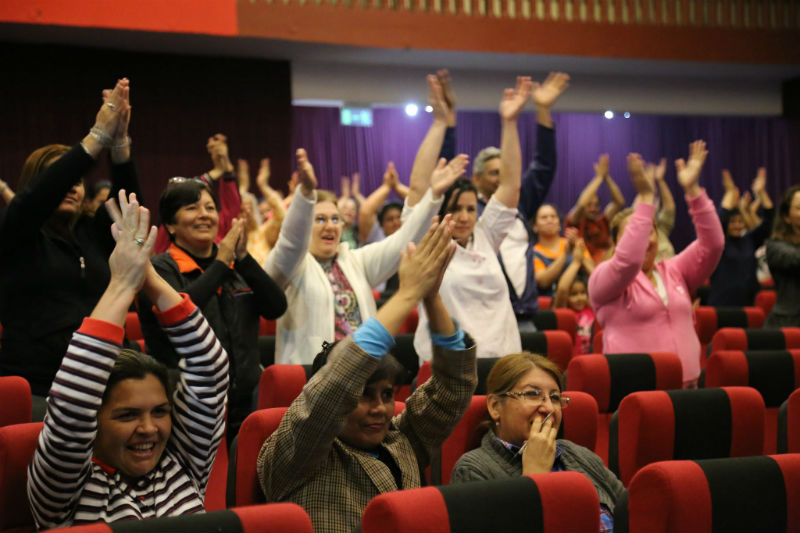“Faith leaders have a critical role that plays beyond the pulpit.” —Dr. Paul Murray

Civil rights leader and former pastor of Atlanta’s historic Providence Missionary Baptist Church Dr. Gerald Durley.
ATLANTA, Dec. 4—Civil rights leader and long-time pastor of Atlanta’s historic Providence Missionary Baptist Church Dr. Gerald Durley encouraged faith leaders to think back to the excitement they had when they first heard the call to lead others to and through God. He said faith leaders are called to address the moral issues in public life and to set aside differences that distract them from making observable change in the world.
Dr. Durley joined a panel of faith leaders from different traditions to explore common grounds for collaboration in meeting human needs at a forum, “The Common Mission of Faith Leaders in Building Ethical Societies,” at the Global Peace Convention in Atlanta, USA, on November 29-December 2 , 2012.
“The world is crying for people to stand up and say ‘Lets do something together,’ the world needs for us to stand up and say, ‘That is wrong.’ The words ‘wrong’ and ‘right’ seem to have been fettered away, but we have to stand for truth,” Dr. Durley said.
Leaders need to understand the power of cooperation and the need for unification around principles of truth and morality as tools to combat hatred and war, Dr. Durley added. “The time is now—no, the time is overdue that the moral leaders of all faiths, all denominations, come together and think, organize, strategize and actively speak as one voice.”
Bishop Manoel Ferriera, President of the Assemblies of God of Brazil, encouraged attendees to focus on love through leadership. He acknowledged that in Brazil approximately 30 million people are below the poverty level and the church has not done as much as possible to provide for those in need. One faith organization cannot heal all of the issues in the world, he said, but through collaboration, many things are possible. “I believe that an organization such as this can come and help us do whatever needs to be done to help those in need, because by ourselves, we cannot get it done,” Bishop Ferriera said. “We have to open our hearts so that we can get something better, so we can get something done.”
Imam Pelmon El Amin, Imam Emeritus of the Atlanta Masjid of Al-Islam, quoted from the Quran.
All mankind, we created you from a single soul, a single pair, male and female, and made you into nations and tribes so that you would know one another. Verily the best of you, the most honorable of you in the sight of God is he or she who is the most righteous. And God in His full knowledge is aware of all things.

From left: Robert L. Woodson, President of the Center for Neighborhood Enterprise; Rev. Robert Thompson, Former Chair of the Parliament of the World’s Religions; and Imam Pelmon El Amin, Imam Emeritus of the Atlanta Masjid of Al-Islam
According to the Quran, the differences and diversities in the human family come from God. By knowing one another, we not only appreciate the other, but come to have a deeper appreciation for ourselves. By knowing others, we open up own potential.
“Interfaith work is designed to create civil discourse between people as well as friendship,” said El Amin. “In interfaith exchange, tolerance is not enough; faith leaders must realize that although they have different beliefs, there is a common ethical obligation. “

The audience at the Forum, “The Common Mission of Faith Leaders in Building Ethical Societies,” at the Global Peace Convention in Atlanta, USA.
“The highest form of maturity is the ability to be self-critical,” Robert L. Woodson, President of the Center for Neighborhood Enterprise observed at the interfaith panel. “Jesus didn’t feed people to set up a feeding program, he wanted to associate his actions with his doctrines.” Woodson encourages faith leaders to “apply old values to a new vision.” He called for “innovation in the execution of doctrine,” and action and forward thinking in addressing people outside of the faith.
Rev. Robert Thompson, Former Chair of the Parliament of the World’s Religions, told the panel that “the key to kindness, compassion and global peace lies within our religious traditions.” He urged faith leaders to find similarities in their missions to become more effective.
Rev. Thompson noted that despite all of the variations in religious organizations, the idea of the Golden Rule is common to 21 of the world’s religious institutions. The key is to treat others with kindness and respect, “If you can’t see God IN all, then you can’t see got AT all,” Rev. Thompson said.
The Global Peace Convention drew some 700 government, civil society, and faith leaders from 40 nations. It concluded on December 2 with an International Youth Assembly at the Martin Luther King Center for Nonviolent Social Change.
Laura Riley is a graduate student at Emory University in Atlanta.



